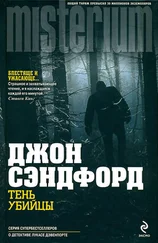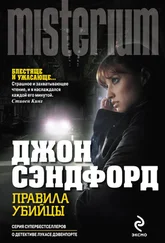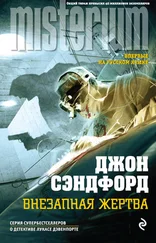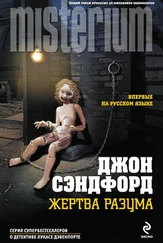“Get the shit below,” Cattaneo said. “And Willy—five is great. We owe you thirty-seven-five. What’s the problem?”
Virgil shook the water off his back and legs and asked Rae, “How’re we doing, Ally?”
“Two more dives, I’m thinking Porsche, sweet pea,” and she again kissed him on the lips.
Virgil sat in the cockpit and looked up at Cattaneo, brushed his hair back, and said, “The ship that dumped the cans wasn’t running exactly parallel to the outer reefs . . . it was sliding off to the east, into deeper water. The south end of the dump was in a hundred and forty to a hundred and fifty feet. Today I was down at a hundred and sixty-six. By the end of the dump, it could be close to two hundred feet, or two-ten. That’s getting . . . risky. I’ll need more bottom time to collect the cans and I’ll need more decompression time coming back up.”
“But you can do it?”
“I guess. Depending on how deep it gets—it’s impossible to know, depending on where the ship went. I might need to go to Trimix instead of straight air. I don’t know about sources for it here in Lauderdale. I’m sure there must be some.”
Cattaneo said, “Hold on to the wheel for a minute. You don’t have to steer, just hold on.”
Virgil did that and Cattaneo went below and returned with a plastic briefcase and took out an iPad.
“Aqua Map,” he said.
He called up a chart of the ocean north of Port Everglades, touched the screen, said, “Here’s the drop site. Did you check the compass heading for the drops?”
“About five degrees off north. That’s probably not exact, but it’ll be close.”
Cattaneo fiddled with the chart for a moment, then said, “Damn-it. You’re right. The north end of the site will be close to two hundred—a hundred and ninety to two hundred.”
Rae said, “Time to bail?”
Virgil rubbed his eyes and said, “Ah, I can do it. I can’t stay down as long without going to Trimix, though.”
Cattaneo said, “Tell you what. I’ll throw in an extra thousand dollars for the deep dives. Don’t cheat me, I’m going to look at whatever depths you get to, but below a hundred and seventy-five, I’ll throw in the extra grand.”
Virgil nodded: “Okay. What’s the weather tomorrow?”
Cattaneo said, “Gonna be smooth as a baby’s butt.”
The rest of the run back to the boat slip was routine. On the way, Virgil told them about the dive: “I’m not sure, but I think I might be done with the south end. There was more silt stirring around tonight, I might have missed some stuff, so I’m not positive.”
“Don’t worry about it—we’ll worry after we know what is down there. Go north. You’re the dive boss,” Cattaneo said.
At the slip, Virgil, now dressed in street clothes, helped pile the scuba gear into Regio’s Lexus, and Regio drove them back to the apartment. “Tomorrow at the same time?” Regio asked, as they carried the gear up to the apartment.
“Yeah. I’ll call around, see what I can find out about Trimix. I don’t really need it at two hundred, unless I need to stay down.”
“You gotta get into the computer age, Willy,” Regio said. “I’ll get back to my place and check dive shops. I can call you tonight with a Trimix shop.”
“That’d be awesome,” Virgil said.
Regio said to Rae, “Don’t talk him out of it. Eight thousand five hundred dollars per can. If he gets eleven cans like he did the first night, that’s a hair less than a hundred grand.”
“It’s ninety-three five, which is a couple of hairs less than a hundred grand,” Rae said. “And we don’t get nothin’ if he’s dead.”
“Neither will we,” Regio said. He turned to Virgil: “You’re doing good, Willy. Gotta keep it up.”
CHAPTER
TWENTY-FIVE
Staten Island:
They’d waited a long time in the FBI suite on Staten Island, but as Cattaneo’s boat was pushing out of the Atlantic through the entrance to Port Everglades, the surveillance guys in the truck called and said, “Look at this, look at this.”
A Chrysler sedan rolled past the truck, paused at the cross street, and then rolled into the car wash parking lot. The overhead door on the garage went up and the Chrysler went inside. The door came down and one of the computer operators was already running the license tag.
“This is one of the prime dealers,” she said. “Jerry Poole, AKA the Hat. He wears hats.”
“What’s his file look like?” Lucas asked. He’d been sitting on a couch, reading a battered New Yorker , and came to look at the computer screen.
“He’s bad. Bad enough? Maybe,” Kate Orish said.
“If he’s only a ‘maybe,’ then let’s wait,” Lucas said. “Can we track him?”
“We can. I seriously doubt that he’ll put anything on the street tonight. He’ll want to get it cut, talk to his people . . .”
“Are we covering his phone?”
“One of them: but he has another and we don’t know what it is. He mostly talks to his wife on the iPhone.”
“Damnit. Stay on him, and let’s wait.”
“Your call,” Orish said. “For now, anyway.”
“There’s still somebody in the garage. You can see the light under the doors. There are more people on the way,” Devlin said.
Rae called. “We’re back at the apartment,” she said. “Virgil brought up another five cans. You’ll have to talk to the surveillance guys to find out where they went. But: Regio shot the Coast Guardsmen. He didn’t admit it, but he did. Cattaneo was on the boat and I think Lange was there, too.”
She told him about the short conversation on the boat, and how Cattaneo had cut it off.
“Don’t push it,” Lucas said. “We don’t want them pissed or suspicious.”
“They’re too greedy to suspect anything. We’re going back out tomorrow night, unless you say otherwise. They’re pushing Virgil.”
“Watch your phones. We’ve got people picking up the dope now. You get the red flag, you bail, okay?”
“Got it.”
After a brief silence, Lucas added, “Tomorrow could be the last dive. I think we’ll be grabbing them tomorrow, probably tomorrow night. Watch the street tomorrow, and when you see them coming to pick you up, call me. I may tell you to bail right then.”
Another car pulled into the car wash, which was now dark. The car disappeared into the garage, as the others had, and when the computer operator ran the New Jersey license tag, it came back with Salas Zamora, a street dealer with a half dozen low-level drug busts.
“He’s moving up, but he’s not the one you want,” Orish said. “We’ve been here all day. I’ll give it another hour, and then I’m going to bed. I’d suggest you do the same—if anything really good-looking comes up, the night shift will give us a call.”
“What about the guys in the truck?” Lucas asked.
“We’ve got another shift coming in for them, too. They’ll drive out a way, drop the day shift and load the night shift, and go back. While they’re making the trade, we’ve got a car that’ll park in their space to keep it open.”
“You know what I want to do?” Lucas asked. “I want to see where the garage guys go, when they close down. Could I get a surveillance car around front, somebody to give me a ride?”
Orish said, “Sure. What are you thinking?”
“Unless they’re passing out kilos of heroin on credit, those prime dealers are handing over cash when they pick up the dope. In my experience, credit is unlikely, though I don’t have that much experience with dope.”
“I think you’re right,” said one of the feds. “I used to be a cop in Boston and worked narcotics for a while. Credit was nonexistent on the street and rare higher up. They might not be collecting money from everyone, but I bet they’re collecting from most of them. From the new guys, anyway.”
Читать дальше
![Джон Сэндфорд Ocean Prey [calibre] обложка книги](/books/384313/dzhon-sendford-ocean-prey-calibre-cover.webp)










![Джон Ирвинг - Viename asmenyje [calibre]](/books/384315/dzhon-irving-viename-asmenyje-calibre-thumb.webp)
![Джон Ирвинг - Vandens metodas [calibre]](/books/384316/dzhon-irving-vandens-metodas-calibre-thumb.webp)